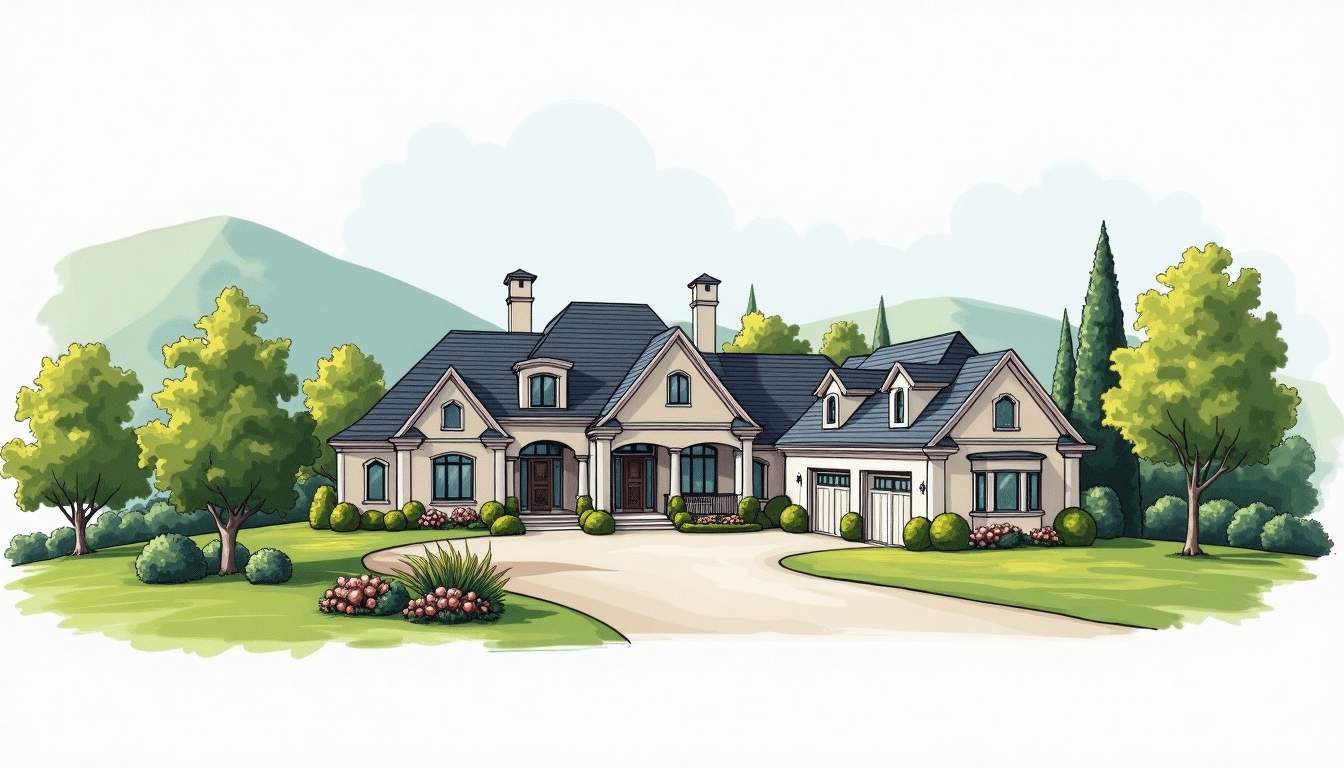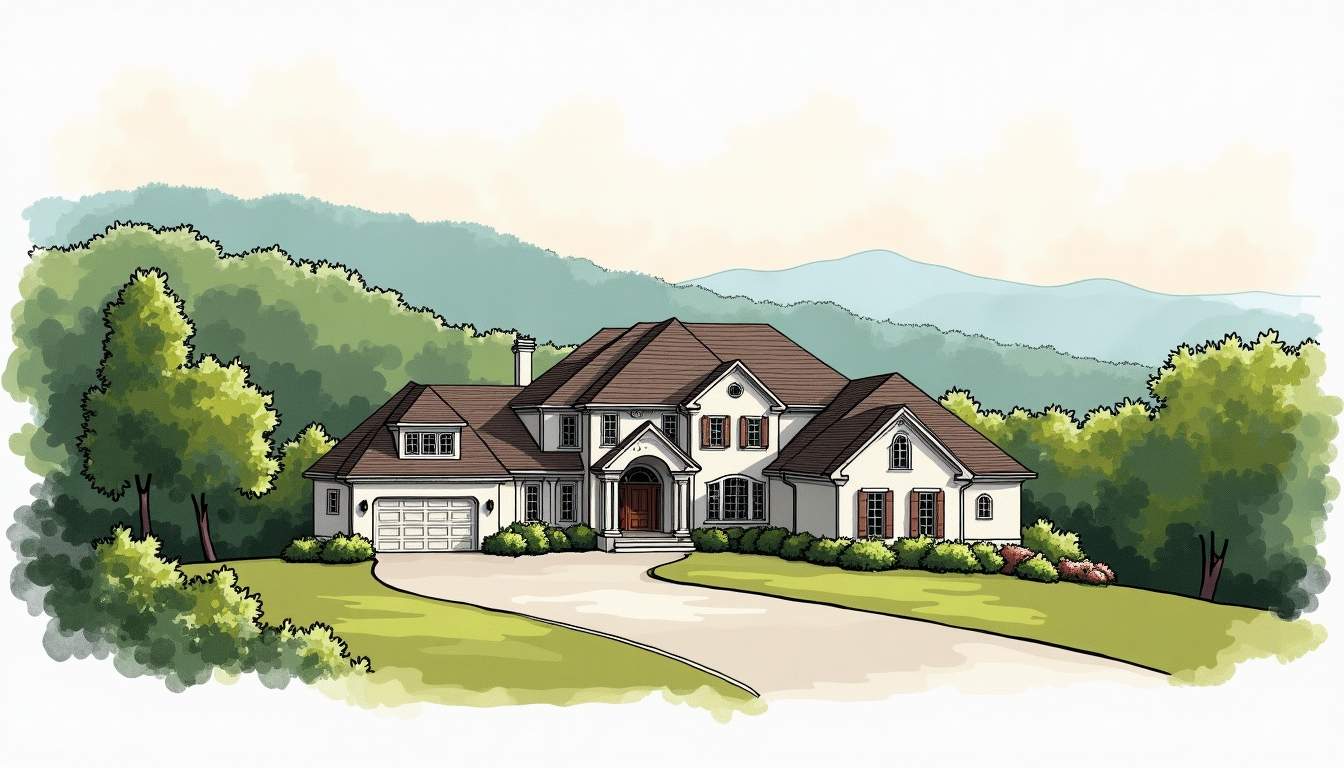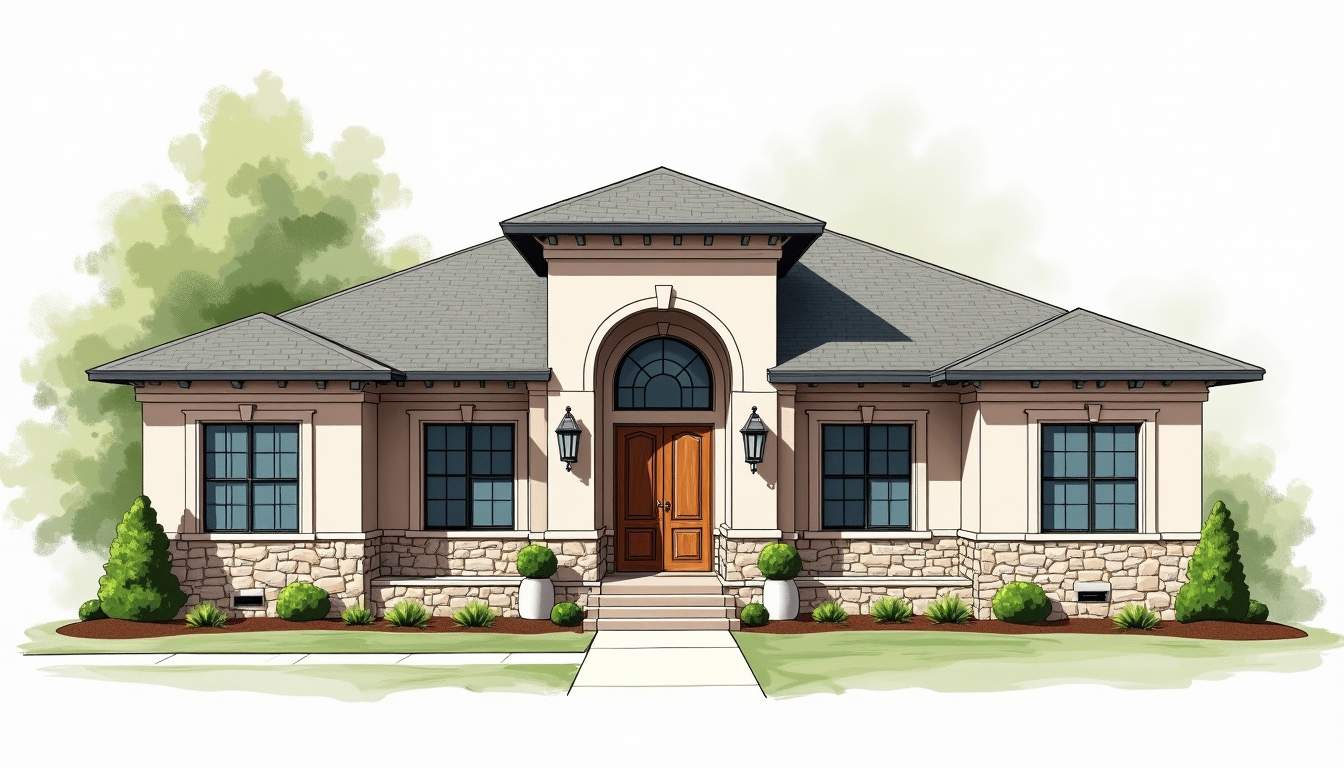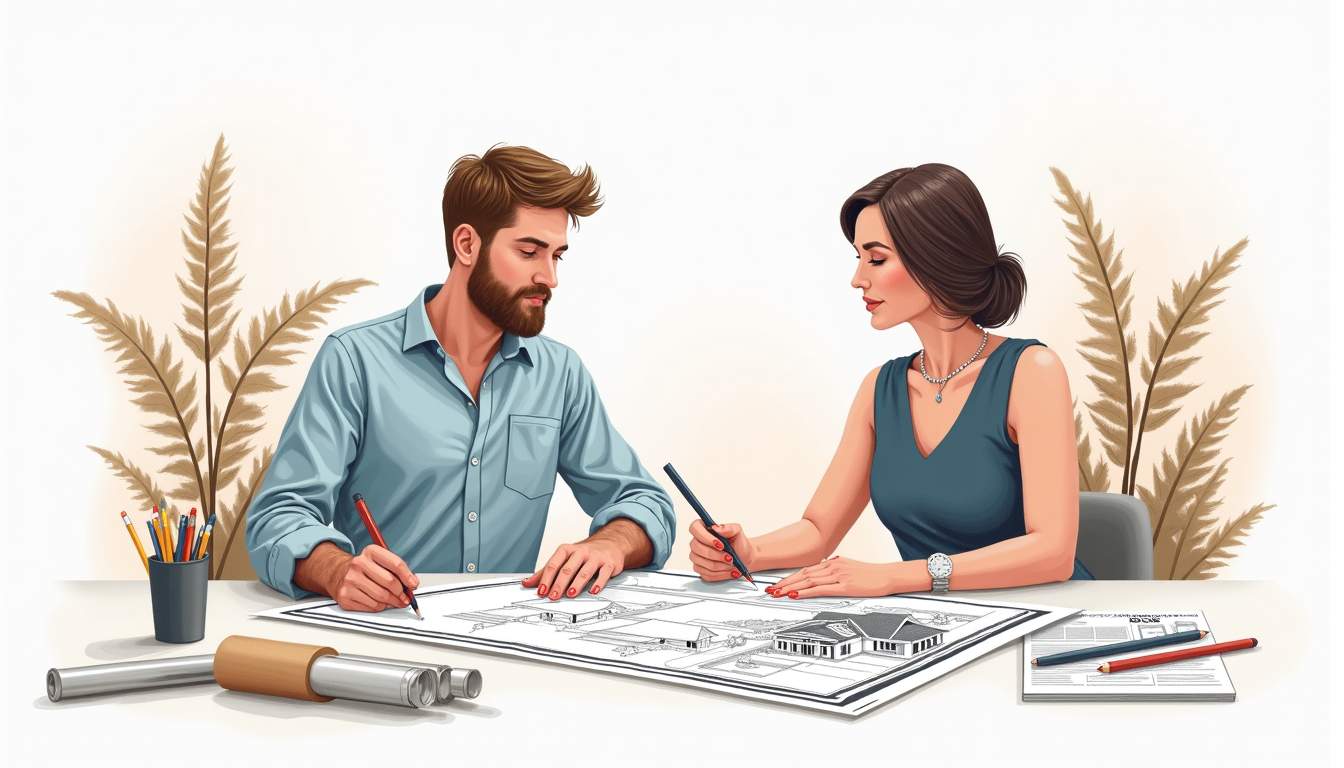
East Tennessee has become synonymous with a lifestyle that blends mountain vistas, rolling farmland, and sophisticated living. For individuals and families seeking custom estate homes in this region, the pursuit is about more than square footage: it is about architectural distinction, site-sensitive design, and builders who can translate a vision into lasting craftsmanship. The demand for luxury custom homes here has led to a concentration of experienced architects, interior designers, and builders who understand both the climate and the culture of the region.
East Tennessee's geography is one of its strongest draws. From the foothills of the Great Smoky Mountains to the quieter ridgelines overlooking rivers and lakes, properties often come with views and natural features that shape the home's design. Prospective homeowners are attracted to the balance of rural privacy and access to urban amenities in cities like Knoxville, Chattanooga, and Oak Ridge. This balance allows custom estates to be serene retreats while remaining connected to cultural and recreational opportunities.

Climate plays a role in design decisions as well. Mild winters and warm summers influence choices in material, insulation, window placement, and porch orientation. Many estate homes take advantage of indoor-outdoor living with covered terraces, screened porches, and expansive glazing that frame mountain sunsets or pastoral scenes. The result is a lifestyle-oriented home that feels integrated with its surroundings rather than imposed upon them.
Contemporary takes on classic styles are trending in East Tennessee estates. Transitional design—melding elements of traditional Southern architecture with modern clean lines—remains popular. Stone foundations, metal roofs, and deep porches nod to regional history, while open floor plans, minimalist cabinetry, and large-format tiles add a refined contemporary touch. This blend appeals to buyers who want a timeless look that also feels fresh and functional.
Another notable trend is the focus on wellness and sustainability. Energy-efficient systems, geothermal or heat-pump HVAC, high-performance windows, and advanced insulation are increasingly standard for luxury builds. Home gyms, spa baths, and meditation spaces are common inclusions, and many estates feature dedicated wellness wings or standalone guest cottages to support multigenerational living and long-term comfort.
Designers are maximizing connections to nature. Great rooms that open to covered outdoor kitchens, glass doors that disappear into pockets, and multi-level decks create seamless transitions between interior and exterior. Landscaped terraces, fire pits, and infinity-edge pools often become focal points, extending living areas and enhancing entertainment possibilities. Thoughtful orientation maximizes views while minimizing exposure to harsh sun and prevailing winds.
With remote work established as a long-term reality for many professionals, custom estates now prioritize private offices, soundproof studios, and flexible rooms that can serve as libraries, classrooms, or media theaters. Built-in technology infrastructure, such as integrated network wiring and dedicated server rooms, is often included to ensure connectivity and security without compromising aesthetic appeal.
Finding a builder with a proven record is critical for a successful custom estate. Reputation, longevity, and a portfolio of finished homes are the first markers to examine. Look for builders who provide detailed portfolios that include walk-through photos, customer testimonials, and clarity about materials and subcontractors. Transparency about timelines, allowances, and the change-order process helps set realistic expectations from the outset.
Licensing, insurance, and memberships in professional organizations signal professionalism. Affiliations with the Home Builders Association or the National Association of Home Builders, for example, are useful indicators of adherence to industry standards. Beyond credentials, a builder's local knowledge is invaluable: understanding zoning, septic systems, soil conditions, and permit processes in East Tennessee will prevent costly delays and ensure the design conforms with regional requirements.
Strong communication is a hallmark of reliable builders. Regular progress reports, transparent cost tracking, and a single point of contact for decisions reduce friction during construction. Builders who employ project management technology—shared schedules, photo logs, and budgeting tools—help clients feel engaged and informed. Clear lines of communication also expedite resolution when unexpected site conditions or design modifications arise.
Custom estates depend on skilled trades: masons, carpenters, metalworkers, and finish carpenters make the difference between a showpiece and a house that looks unfinished. Builders who maintain long-term relationships with trusted subcontractors ensure consistency in craft and reliability. High-end projects often require craftsmen capable of intricate millwork, custom stonework, and complex mechanical system installations, so vetting a builder's team is as important as reviewing past completed projects.
Selecting the right parcel of land sets the tone for the entire project. Site topography, soil stability, access to utilities, and tree coverage influence placement, foundation type, and grading needs. A sloping site might offer dramatic views and private entryways but could require substantial foundation work and retaining walls. Conversely, a flatter parcel may be easier to build on but could lack the dramatic vantage points that justify a custom estate's cost.
Environmental assessments and soil tests should be completed early. In East Tennessee, karst topography in certain areas can complicate foundation design and septic placement, making geotechnical studies essential. Wetland delineations and watershed protections can also affect build envelopes. Working with a builder who coordinates land surveys, drainage plans, and erosion control measures streamlines the permitting process and protects the long-term value of the property.
Careful orientation maximizes daylight, passive heating, and scenic views. Architects often create view corridors that frame distant mountains or river bends, while preserving privacy from nearby neighbors. Consideration of seasonal sun paths informs window placement and porch design, reducing summer heat gain while capturing winter light. Landscape architects collaborate to ensure plantings complement the architecture and enhance year-round interest.
High-end materials elevate a custom estate from merely large to truly luxurious. Hand-chiseled stone, reclaimed timbers, bronze fixtures, and custom millwork lend permanence and character. While trends influence finishes, investing in classic materials—natural stone, hardwood floors, and well-crafted cabinetry—helps ensure the home remains stylish for decades.

Customization extends to lighting and hardware: layered lighting schemes, custom pendant clusters, and carefully selected landscape illumination enhance evening ambiance. Imported tiles, artisan fireplaces, and bespoke staircases create signature moments that distinguish one estate from another. Smart material choices balance aesthetics with durability, particularly in humid summers and temperature swings characteristic of the region.
Kitchens in custom estates serve as culinary stages and gathering spots. Professional-grade appliances, large islands with seating, walk-in pantries, and separate prep kitchens are common. Open sightlines to dining areas and outdoor patios facilitate entertaining, while dedicated catering zones and multiple beverage stations support large gatherings. Finishes like leathered stone countertops, custom range hoods, and integrated refrigeration blend utility with luxury.
Primary suites emphasize comfort and privacy. Oversized bedrooms opening to private terraces, spa-like ensuite bathrooms with soaking tubs and steam showers, and expansive walk-in closets with custom millwork create a hotel-quality sanctuary. Many estates include separate dressing rooms, safe rooms, and private study nooks, turning the primary suite into a multifunctional retreat rather than just a sleeping area.
While custom estates are often intended as long-term homes, resale value deserves attention during the design phase. Timeless architecture, high-quality construction, and a sensible floor plan support future marketability. Avoid overly idiosyncratic themes that may narrow the pool of future buyers; instead, focus on adaptable spaces, good sight lines, and well-proportioned rooms that appeal to broad preferences while retaining unique touches.
Energy efficiency and low-maintenance landscaping also protect long-term costs and appeal. Buyers increasingly prioritize green features, so LEED certification or other sustainability credentials can enhance value. Additionally, ensuring mechanical systems are accessible for servicing and replacement facilitates upkeep and reduces lifecycle expenses for the next owner.
An integrated team of architect, interior designer, landscape architect, and builder produces the strongest outcomes. Architects translate a client's lifestyle into a coherent plan that respects site constraints and local zoning, while designers select finishes and furnishings that align with the architectural language. Collaboration early in the process reduces costly revisions and ensures the build budget reflects design aspirations.

Design professionals bring problem-solving skills that turn challenging sites into opportunities. They can create multigenerational layouts, incorporate accessory dwelling units, and design resilient homes that perform well in diverse weather conditions. Choosing professionals with experience in custom estates is critical: their portfolios demonstrate an ability to coordinate complex systems and produce cohesive, elevated homes.
Custom estate homes in East Tennessee represent an investment in both lifestyle and enduring quality. Thoughtful design, site-sensitive planning, and experienced builders transform scenic parcels into homes that serve daily life while showcasing exceptional materials and craftsmanship. Whether the goal is a mountain retreat, a riverfront compound, or a modern farmhouse overlooking fields, careful planning and trusted partners make the difference between a house and a true estate.
Prospective owners who prioritize long-term value, sustainable systems, and collaborative design will find East Tennessee offers a rich environment for creating homes that feel at once regionally authentic and architecturally refined. The right builder and design team will balance ambition with practicality, delivering a customized residence that fits the land, the lifestyle, and the future.
Elevate your lifestyle with a custom estate in Tennessee National, where luxury living unfolds within a premier gated community surrounded by breathtaking natural beauty. Enjoy exclusive access to a Greg Norman Signature Golf Course, private marina, waterfront dining, and more than 20 member amenities designed to complement your refined taste and desire for comfort. Whether you prefer a move-in ready home or a personalized build, Tennessee National invites you to experience resort-style living tailored to your vision. Schedule a Private Tour today and take the first step toward making your dream home a reality.